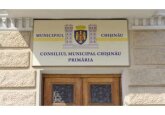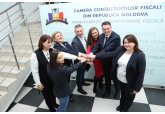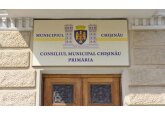
The State Tax Service presented the main changes related to the implementation of tax and customs policies for 2024.
The department recalled that on January 1, with a number of exceptions, amendments to legislation implemented as part of the tax and customs policy for this year came into force. Thus, a tax regime has been introduced for business entities involved in the sale of ferrous and non-ferrous metal waste - for companies in this industry, a tax of 7% of income during one tax period has been established. In the HoReCa sector, from December 31, after the lifting of the state of emergency, the standard VAT rate was reduced from 12% to 7%. At the same time, starting this year, a reduced VAT rate (8%) applies to feminine hygiene products. Subjects of taxation have the right to deduct paid or payable amounts of VAT on purchased inventory items and services in the presence of cash receipts/fiscal documents issued by cash register equipment connected to the Automated Information System "Electronic Sales Monitoring" for purchases, the cost of which for each the check does not exceed 2 thousand lei, including VAT, and amounts to no more than 10 thousand lei for one tax period, subject to payment with a business payment card. From January 1, taxes on natural resources will be paid in equal proportions to the state budget (50%) and to the local budget of the first level. Herewith, the tax rates for mineral extraction have been increased. The concept of “dividend” has been adjusted to bring it into line with the provisions of the Civil Code and other laws. As a result, if a unanimous decision is made by the founders, the method of distribution of net profit may be different, disproportionate to the shares of each founder in the authorized capital of the company. The term “interest charges, income in the form of interest” has also been clarified: such income is now considered any income received from a debt obligation of any kind (regardless of the method of its execution), including income from cash deposits, income received on the basis of a financial leasing agreement and in particular income received from government securities, debentures or bonds, including discounts, premiums and prizes relating to such securities, debentures and bonds. Sources of income not subject to income tax have been added. For example, these include payments received by employees to compensate for the costs of alternative childcare services for children under 3 years of age in an amount not exceeding 2,500 lei per month for each employee’s child, as well as gifts in kind, including vouchers received by employees, as well as gifts provided to their minor children, but provided that their amount does not exceed 10% of the average monthly salary for the economy projected for the corresponding year. The range of expenses subject to deduction for tax purposes has also been expanded (in whole or in part - gifts, employee training, sports subscriptions, etc.), the list of expenses subject to deduction for individuals has been expanded (expenses for the purchase of life insurance within one average monthly salary in the economy, expenses on interest on mortgage lending within the framework of the “First Home” state program), etc. The rules for determining capital gains or losses have been revised. From January 1, excise tax rates on most excisable goods have been increased, procedures have been established regarding the application of local taxes in relation to individuals engaged in independent activities, while the trading area for such activities is limited to 50 square meters.// 09.01.2024 — InfoMarket







